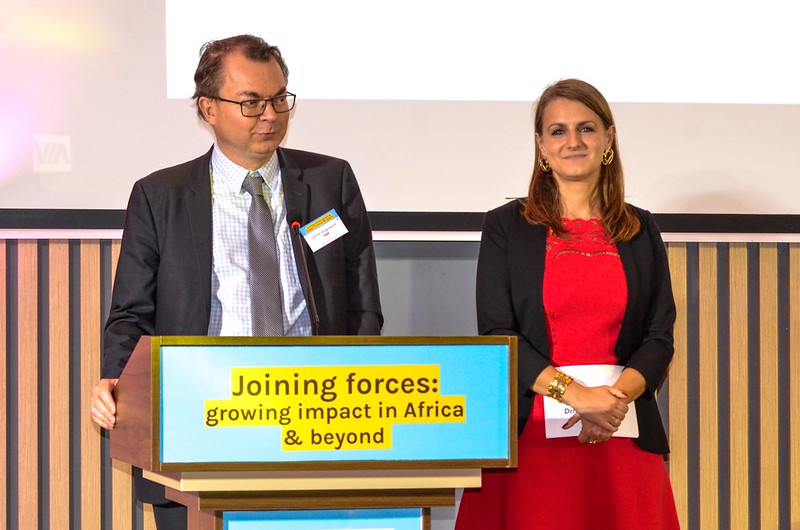Investor collaborations can unlock billions to finance the SDGs
Organised by FAIR and the GSG, ‘’Joining forces: growing impact in Africa & beyond’’, a side event to the 3rd international Finance in Common summit, was dedicated to impact finance.
It brought together experts and international leaders to discuss concrete solutions to finance Sustainable Development Goals (SDGs).

Global leaders agreed that there is an urgency to step up and collaborate more to achieve the SDGs.
-
- DFIs and public development banks (PDBs) are uniquely positioned to attract other investors, such as pension funds, to invest for the SDGs.
- $35bn USD could be unlocked if 10% of pension fund capital in Africa was invested towards the SDGs. A new report1 was published at the event to explain how.
- New collaborations have been announced to increase capital flows to the SDGs in Burkina Faso, Ivory Coast, and Senegal.
Participants and speakers alike agreed that the SDGs can only be achieved if we increase collaborations between all stakeholders, and public finance and private finance players in particular. Currently there is an estimated annual $4.2Tr USD financing gap for the SDGs, and public finance alone will not be sufficient to close this.
Across the day, speakers from government, development finance institutions (DFIs), private investors and other private sector players shared concrete solutions that demonstrated how public and private players can achieve much more by working collaboratively, in areas as diverse as climate mitigation, healthcare, financial inclusion, or agriculture.
Belmonde Dogo, Minister of Solidarity and the Fight against Poverty, Ivory Coast, highlighted in the opening keynote that “to achieve the SDGs, we need the constant support of both public and private sector players. To mobilise capital for a sustainable and inclusive growth in Africa, we will need synergies and coordination between all stakeholders, alongside the creation of a new institutional framework.”
Cliff Prior, CEO, GSG, reinforced the core role of public finance to attract significant amounts of private investments: “DFIs and public development banks (PDBs) are uniquely positioned to demonstrate and develop the investability of SDG projects for other investors. They need to make better use of the de-risking instruments that they already have at their disposal.”
DFIs and public development banks (PDBs) are usually government majority-owned or benefit from government guarantees. This enables them to provide financing on competitive terms or to deploy de-risking instruments, abilities that they should use more to attract further private investments.
The deployment of such de-risking mechanisms can help other investors see opportunities where they wouldn’t have invested previously. For example, if even 10% of pension fund capital in Africa was invested towards the SDGs, that could unlock $35bn USD for the SDGs on the continent. A new report ‘Unlocking pension fund capital for small business finance2’ launched at the event by Collaborative for Frontier Finance, in collaboration with GSG, explores ways in which pension fund capital can be unlocked and play a bigger role in SME finance, the beating heart of economies in terms of jobs, GDP and overall resilience.
Paul-Harry Aithnard, Managing Director, Ecobank Côte d’Ivoire explains: “A major challenge to develop SMEs and make them grow over the long term is to support them at two levels: digitalization and capacity building. Partnerships with other actors are essential to deliver quality services in both areas.”
Dr. James Mwangi, CEO, Equity Group Holdings concludes: “Finance needs to become demand driven rather than supply driven as it has been for so long. Equity Bank has grown thanks to a strong partnership with communities. It has been a symbiotic relationship. I want now to extend an invitation to collaborate and support 5 million SMEs on the continent.”
Thanks to experts from Burkina Faso, France, Ghana, Ivory Coast, Japan, Nigeria, Senegal, South Africa, UK, Zambia, and the EU sharing their work and calls to action, commitments were made, and new collaborations are now underway. Burkina Faso, Ivory Coast, and Senegal, amongst others, have committed to establishing a National Advisory Board (NAB) to develop their national impact finance ecosystems, as a foundational step to ensure that more capital flows to the SDGs.

